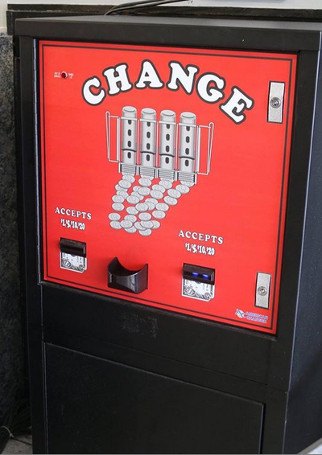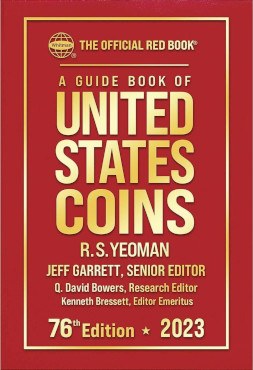Looking for old coins can be fun, and it's also possible to find rare and valuable coins if you know where to look. Below we'll tell you which coins to look for, and the best places to look for them.
What to Look For
It's good to have some background knowledge before getting into coin collecting. It's best to start slow and learn something about what to look out for.
Generally, the older the coin the better. However there are several other factors that determine value. These factors include: rarity, precious metal content, and coin errors.
Notable coins to look for are the United States 90% silver coins that were minted before 1965. These coins are known as 'junk silver' and you can still find them in circulation today. They are easy to spot and when in doubt, you can just check the date. In addition, any penny minted before 1982 is a copper penny and will be worth more in copper than its face value.
Buying a good reference book can be helpful. There are many books out there but one of the most recommended is A Guide Book of United States Coins. Typically known as the 'Red Book', it gives a lot of information and valuations. You can compare coins that you find with the illustrations to get a good idea of their value. You could also subscribe to a periodical such as Coin World or Numismatic News where you receive regular up-to-date information about coins and their market values.
Where to Start Searching
So where should you look to find old coins? You might be surprised by the answer, because valuable coins can sometimes be found in such ordinary places.
Around Your House
Your house is a great place to look for old coins. Attics and cellars are usually the two places in your house that yield the best results. Lost coins can be found in storage boxes for clothes and in household items such as old desks, wardrobes and furniture.
It could also be worth looking under floor coverings or base boards in an older house, because people may have hidden coins there in the past. More than a few valuable coins have been found this way.
Loose Change
You could simply start with your loose change. While there is only a very slim chance of finding a valuable coin, it's still a possibility. It's slightly more likely that you could find a coin worth more than its face value, perhaps a few dollars. If you consistently check your change then over time the odds of finding a valuable coin go up.
Other People's Change
Ask friends or family if you can buy some of their change. You may get a strange look, but as long as you give them the right amount of money in exchange, then they probably won't object. You could also offer to share the profits from any valuable coins you find. Most people like the idea of making a small profit at no risk to themselves.
Many people have jars, bags, or boxes where they save loose change. This can sometimes accumulate to a significant amount, as people forget to sort it and take it to the bank. Ask anyone who has a collection of change if you can look through it. Parents' and grandparents' collections may be many years old, so there's a better chance of finding old or unusual coins in them.
Most collectible coins were once just normal currency and only became valuable due to their scarcity. The older the collection, the more likely it will contain valuable coins.
Change Machines

Change machines hold a lot of coins, and sometimes they hold valuable coins. So the next time you come across a change machine (in the laundromat, arcade or wherever), try changing some paper money into coins. If you get older coins back in return, then that machine could potential yield valuable coins. If the machine returns newly minted coins, then you should look elsewhere.
Advanced Strategies
The strategies listed below require a bigger time commitment, but they are more effective.
Yard Sales and Estate Sales
Sometimes you can find collections of old coins at yard sales and estate sales. The coin collections are usually sold in bulk and at a good price.
If you happen to find silver coins for sale, then you can use our silver coin calculator to lookup the current melt value.
Coin Roll Hunting
Buying rolls of coins from banks at face value is a popular strategy for finding old coins. This is called coin roll hunting. Millions of coins pass through banks every day, and most of them get put into rolls. With this strategy you don't lose money as you simply pay the bank the equivalent amount. But it can be time-intensive because you need to search through a lot of rolls, and then later deposit the non-valuable coins.
Metal Detecting
Metal detecting is a great way to find buried coins. A metal detector with a standard, medium-sized search coil is good for finding coin-sized objects. All metal detectors will locate coins in a general area using either a visual or audio alarm, and some have a target identification feature which shows what the object is before you dig it up.
It's best to buy a metal detector with a built-in pinpoint control, or buy a separate hand held pin pointer. The pinpoint feature will direct you to the exact position in the ground and save a lot of unnecessary digging.
The best places to search are where people gather, or used to gather. Try searching in the grounds of old public buildings, parks, and sports grounds. Don't forget that you must ask the property owner's permission if you want to search on private land.
Conclusion
It isn't difficult to start searching for old coins, and it can become a fun hobby. Most people love the thrill of finding old and valuable coins.
If you want to acquire old coins without having to search for them, then you can buy coins online at a reputable dealer.

